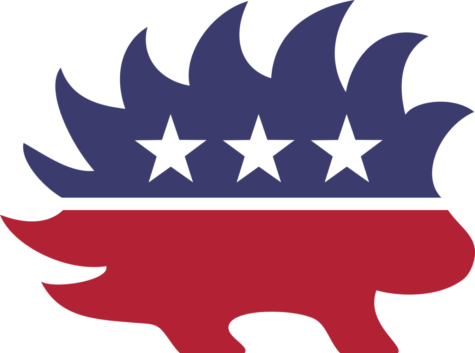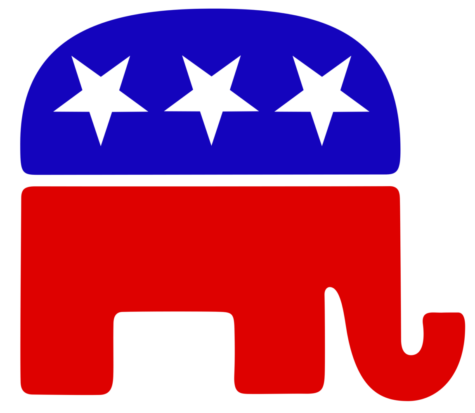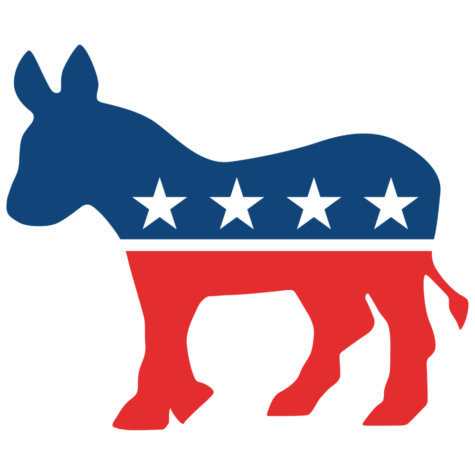Trump’s Tariffs as of April 8
“Pledging to defend American businesses and workers, President Trump imposed tariffs on imported solar panel components and large residential washing machines [in January of 2018]. […] The administration approved tariffs of 20 percent on the first 1.2 million washers and 50 percent of all subsequent imported washers in the following two years. A 30 percent tariff will be imposed on solar panel components, with the rate declining over four years.” (Source: NPR)
“President Trump announced on Thursday, [March 1, 2018] new tariffs on steel (25%) and aluminum (10%)” (Source: Axios)
“President Donald Trump on Thursday [April 5, 2018] directed U.S. trade officials to identify tariffs on $100 billion more Chinese imports, upping the ante in an already high-stakes trade confrontation between the world’s two largest economies.” (Source: Reuters)
“U.S. officials have sought to downplay the threat of a broader trade dispute, saying a negotiated outcome is still possible. But economists warn that the tit-for-tat moves bear the hallmarks of a classic trade rift that could escalate. And already, tensions between the world’s two biggest economies have rattled global stock markets.” (Source: Associated Press)
 Progressive: Damian Walsh ’18
Progressive: Damian Walsh ’18
In March, the president announced a set of tariffs on imported steel and aluminum, and was met with mixed reception to be sure. Establishment Republicans and Democrats generally condemned the action due to its potentially adverse effects on the markets. Similarly, corporate media identified the action as protectionist, and ill-advised. Mr. Trump’s campaign rhetoric was often very populist in regards to trade, something that the working class could strongly support. Unfortunately, protectionism is a double edged-sword; one onto which the president seems to have fallen. To arbitrarily assign sweeping percentage tariffs on industrial goods, such as steel and aluminum, stands counter to the fundamental idea of protectionism. Ideologically, real, logical, protectionism is meant to stimulate domestic investment without dramatically affecting the consumer. Unfortunately, industrial materials such as steel and aluminum are used in the manufacturing processes of other goods which might be made domestically. Not to mention the increased cost of public infrastructure, which further negatively affects the people.
In reality, these tariffs represent just another redistribution of wealth away from the middle and working classes directly to the top income earners. By artificially driving up the cost of everyday goods, and potentially starting a global trade war with our trade partners, the most vulnerable members of society suffer the most. That’s not progressive, it is just the opposite.
The United States does not need, or want, to escalate a trade war with its trade partners, China among them. Yes, the inundation of raw materials markets with lesser quality steel and aluminum is not a conscionable trade practice. Some action might be warranted to help American industry compete; however, to impulsively affect the majority of the world’s trade relationship with the United States is not the appropriate action to take.
If the president really wanted to help the working class, not just pretend he has their interests at heart, he would make sure that they are not subsisting on minimum wage. He could ensure that no American worker is forced, by necessity, to work upwards of 80 hours a week, making starvation wages, so they can provide for their family. That’s real protectionism – protection from outside trade abuses as well as domestic trade abuses.
 Libertarian: Michael Vanelli ’19
Libertarian: Michael Vanelli ’19
“Steel is Steel. You don’t have steel, you don’t have a country,” President Trump said in March, in defense of his new tariffs, which make it harder for Americans to buy steel.
The series of tariffs imposed by the Trump administration, which focus on boosting domestic production of steel, aluminum, and other metals to enhance our military strength; result in heavily taxing international steel imports from everywhere but Mexico and Canada, but it is advertised majorly as a tax on Chinese steel specifically.
Any Libertarian generally believes the government should stay out of the market as much as possible, so being against tariffs is a given. Besides this, pushing the US to produce more steel through taxes when other countries can produce steel at a high quality for a lower cost only makes sense if the US is in dire need of steel and nobody will sell it to us…
Unfortunately for tariff supporters, this argument is foolish for reasons that libertarians are already fighting to draw attention to. For one, Trump’s plan is justified by a desire to bolster military strength. But why make an economic sacrifice and deteriorate our relationship with the rest of the world when the United States already spends 39% of the world’s military budget? We have no need to expand, and if we were in actual threat of an attack then a tariff would still be simply papering over the cracks caused by earlier Trump administration action, such as working to break down arms trade barriers so they could sell $7 billion in precision-guided munitions to Saudi Arabia just months before the tariffs.
If we as a country want to be prepared for attacks, we should make responsible economic decisions and not sell the weapons we’d need to countries we routinely suspect of plotting to kill us (or innocent Yemeni civilians).
 Republican: Alex Tullman ’18
Republican: Alex Tullman ’18
Most people, no matter their political affiliation, agree that tariffs are not beneficial for an economy. There are certain circumstances when it is economically intelligent to use them, but for a developed country like the US, competing and trading on a global scale, why would we need tariffs? We almost never do. Tariffs hurt trade, tariffs hurt consumers by raising prices, and tariffs hurt companies by decreasing foreign sales. So why has our president and his administration decided to put tariffs on aluminum, steel, and solar panels? His administration is attempting to stimulate the market for US aluminum and steel, but then this question arises: why do these US companies need to be coddled and babied by the government? Why can’t they compete in a global market? Imbeciles run them; imbeciles, who do not understand the market, who are behind on technology, and who made hundreds of poor management decisions over the past 30 years. Our consumers do not deserve to suffer at the hand of the incompetence of these companies, and the government should realize this. This being said, there is one tariff that can be supported, the one on solar panels. To give some context, the tariff is set at 30% and will decrease incrementally down to 15% over four years. This sounds pretty drastic, until you realize that the first 2.5 gigawatts of solar energy imported are exempt from the tariff (over $8,000,000,000 in value). This tariff is not anti renewable energy and it’s not going to destroy the industry. It is protecting new, domestic firms, which deserve the aid, unlike those firms in the steel and aluminum industries.
Democrat: Lou Alpert ’18
Giving Trump the benefit of the doubt, let’s assume he’s simply trying to make trading with China a fair deal. It’s hard to believe that would be the case with these tariffs, but I don’t want to use this platform to insult the president’s motives or character. Instead, the only thing Democrats can and should be doing is pointing out the absurdity of the tariffs and presenting the cold hard facts.
Here’s a quick and basic Econ lesson: When tariffs are imposed, prices rise and the average American consumer suffers. When prices rise, transactions occur less often and American businesses suffer. That’s right, Trump’s tariffs are a lose-lose for businesses and consumers. Trying to force consumers to buy “American goods” will not help anyway, solely based on the fact that consumers will not be able to afford the goods! It’s no surprise then that both conservatives and liberals are so against these tariffs. And yet Trump still charges forward with them. Is he uneducated on the topic? Are his advisors? If he continues to push these tariffs on China then how can we believe that Trump really does want the best for our country?
According to CNN: “The Trump administration late Tuesday unveiled a list of 1,300 Chinese products, like flat-screen televisions, aircraft parts and batteries, that could be hit with 25% tariffs. Beijing responded with plans to target products made by American soybean farmers, car makers, chemical companies and other corporations.” We’re playing with fire and have angered the economic giant that we rely on and are in massive debt to. Are you nervous yet? You should be.























